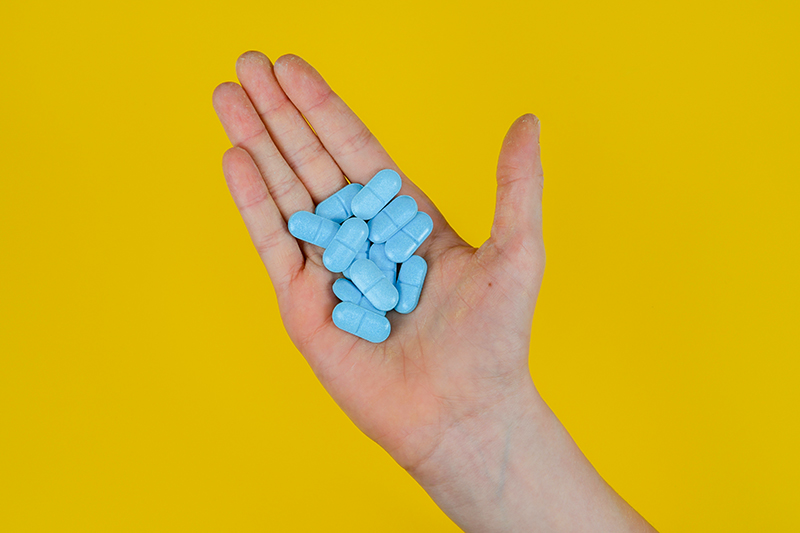How PrEP Plays Out in Studies, Focus Groups
Groups that are among the most at risk of acquiring HIV generally hold favorable attitudes toward pre-exposure prophylaxis (PrEP) and at-home HIV testing, according to studies presented by researchers today at an AIDS 2012 workshop, “PEP, PrEP and Testing.”
A panel of researchers sharing the findings of studies of these at-risk populations said that while PrEP and greater access to HIV testing was favored by a majority of those surveyed, much more research was needed. The researchers also warned that the availability of PrEP or over-the-counter HIV tests could lead some people to engage in riskier sexual behavior.
As most in the scientific community seem to be embracing PrEP as one of many tools that could aid the fight against HIV/AIDS, others – including some audience members – expressed skepticism. One week after the Food and Drug Administration (FDA) announced it had approved the antiretroviral drug Truvada for daily use as a PrEP component, in combination with safer-sex practices, to reduce the risk of HIV infection among adults considered at high risk of acquiring the virus, some critics remain wary of fully endosing PrEP over concerns that, in practice, high-risk populations will continue to engage in behavior that increases their chances of becoming infected.
Still, because PrEP does not require consensual action by both parties, it is viewed as a tool that could help particularly those who are the receptive partner in sexual intercourse regardless of sexual orientation.
In one study that looked at the acceptability of oral intermittent pre-exposure prophylaxis, or iPrEP, in South Africa, focus groups revealed a high degree of acceptability due to a lower frequency of dosing and the ability to use it without disclosing to one’s partner, according to Linda-Gail Bekker, chief operating officer of the Desmond Tutu HIV Foundation. Bekker noted that men in the focus groups were more likely to be able to “plan” their next sexual encounter, relative to women, thereby highligting the possible benefits for women, who may have less control or say over when sex occurs.
In another study, which surveyed men who have sex with men (MSM) in Washington and Miami, Lisa Metsch, a professor of epidemiology and public health at the University of Miami, revealed that neary half of all MSM in the Miami cohort expressed a willingness to try PrEP if it was made available to them, while 61 percent of the D.C. cohort said the same. In D.C., those with fewer sexual partners and those older than 33 were less likely to want to use PrEP, compared to other groups.
A third study, of mostly heterosexual HIV-negative men, revealed most were willing to use PrEP if available. However, more than a quarter of the subjects indicated that the use of PrEP would make them more likely to engage in unprotected sex with an HIV-positive person, indicating that there may be some loss of sexual inhibition, despite information that PrEP is recommended to be used in combination with safer-sex practices. Critics of the FDA approval of PrEP say findings like these concern them, fearing that such behavior will increase outside of clinical-trial settings.
A fourth study looked at the availability of over-the-counter at-home HIV testing, following the FDA’s July 3 approval of the OraQuick rapid-HIV oral test, which is expected to be available in October. In a survey of men considered at high risk due to engaging in unprotected anal intercourse, 80 percent said they were interested in testing a potential sexual partner prior to engaging in sex. in the second part of the study, where the men were given the test to use in the field for a three-month period, the men in the study asked 124 of 150 partners if they’d be willing to take the test. Of those asked, 101 complied and 23 refused. According to the subjects of the study, a refusal to get tested was taken as a sign not to engage in unprotected sex with that particular person.
Researcher Alex Carballo-Diequez, of the HIV Center for Clinical and Behavioral Studies at the New York State Psychiatric Institute and Columbia University, said the results seemd to indicate that available testing modifies people’s sexual behavior, prompting some audience objections and questions about the reliability of the test, given a possible “window period” during which a person may be infected but has not yet developed the HIV antibodies that produce a “positive” test result.
Carballo-Diequez pushed back, saying that while the availability of testing was not a guaranteed protection against HIV, it could still reduce the infection incidence by making people aware of partners’ HIV statuses.
“Sometimes, because we want something that is optimal, we don’t use something that is good enough,” he said.
Support Metro Weekly’s Journalism
These are challenging times for news organizations. And yet it’s crucial we stay active and provide vital resources and information to both our local readers and the world. So won’t you please take a moment and consider supporting Metro Weekly with a membership? For as little as $5 a month, you can help ensure Metro Weekly magazine and MetroWeekly.com remain free, viable resources as we provide the best, most diverse, culturally-resonant LGBTQ coverage in both the D.C. region and around the world. Memberships come with exclusive perks and discounts, your own personal digital delivery of each week’s magazine (and an archive), access to our Member's Lounge when it launches this fall, and exclusive members-only items like Metro Weekly Membership Mugs and Tote Bags! Check out all our membership levels here and please join us today!























